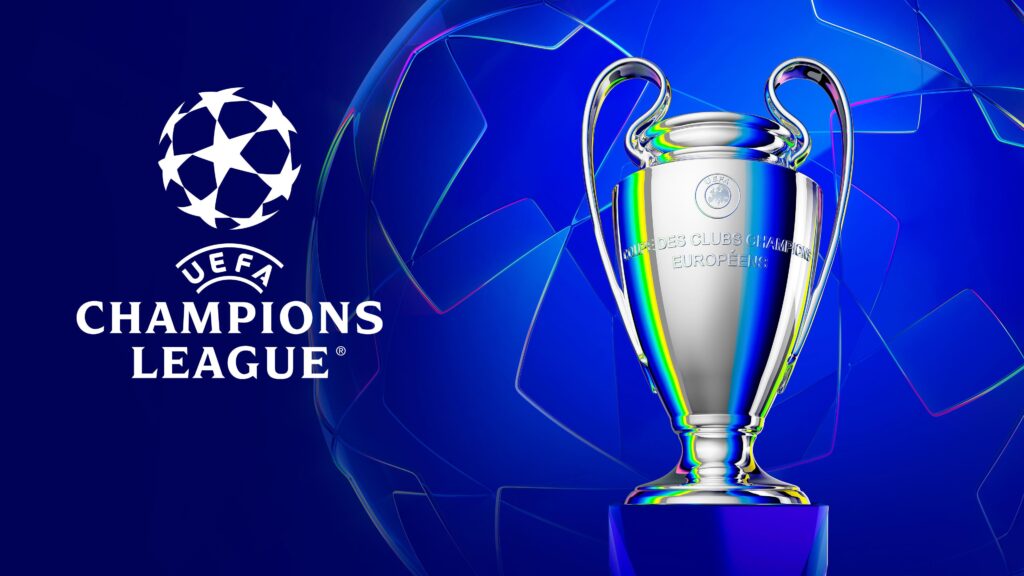As the UEFA Champions League continues to capture the creativity of football fans worldwide,the tournament’s knockout format remains a focal point of debate among analysts,players,adn enthusiasts alike. As its inception, this structure has provided thrilling moments and dramatic upsets, but as the landscape of football evolves, so too do the questions surrounding its effectiveness and fairness. In this article, we delve into the nuances of the Champions League knockout format, examining its past importance, the potential for innovation, and the ongoing discussions about whether it still represents the pinnacle of European club competition. With insights from experts and a look at option models,we aim to provide a complete evaluation of a format that has defined the beautiful game for decades.
table of Contents
- assessing the Historical strengths of the Champions League Knockout Format
- Examining the Impact on Team Performance and Fan Engagement
- identifying Areas for Improvement in Match scheduling and Tournament Structure
- Proposing Alternatives to Enhance Competitiveness and Fairness in Future Editions
- Closing Remarks
Assessing the historical Strengths of the Champions League Knockout Format
The Champions League knockout format has long been lauded for its ability to elevate the stakes of each match, providing a thrilling spectacle for fans and players alike. This system fosters intense competition and allows for dramatic storylines, as it often features iconic matchups between elite clubs. Some historical strengths of the knockout rounds include:
- Surprise Upsets: The nature of knockout rounds means that lower-seeded teams can eliminate top contenders, leading to unforeseen outcomes that captivate audiences.
- Tactical Battles: Managers must adapt their strategies over two legs, often leading to highly tactical and engaging football.
- Heart-Stopping Moments: With each match possibly determining a team’s progression or elimination, late goals and penalty shootouts create unforgettable moments.
Moreover, the format promotes a winner-takes-all mentality, pushing players to perform at their highest level under immense pressure. This unique aspect fosters memorable rivalries, as teams from different leagues clash with everything on the line. A quick look at some historical knockout stage highlights illustrates this point:
| Year | memorable Upset | Final Score |
|---|---|---|
| 2004 | Porto vs. Manchester united | 4-2 (Aggregate) |
| 2012 | Chelsea vs. Barcelona | 3-2 (Aggregate) |
| 2019 | Ajax vs. Real Madrid | 5-3 (Aggregate) |
Examining the Impact on Team Performance and Fan Engagement
In the high-stakes environment of the Champions League knockout stage, teams often experience a significant shift in performance dynamics. The pressure of elimination fosters a unique atmosphere where players must harness their capabilities and rely on teamwork like never before. This period can lead to remarkable displays of grit and determination, often translating into breakthrough performances and unexpected upsets. The intensity of these matches tends to sharpen focus, resulting in:
- Heightened Collaboration: Players must work seamlessly under pressure.
- Strategic Adaptability: Teams adjust tactics based on the opponent’s strengths and weaknesses.
- Skill Advancement: Young talents often seize the moment to showcase their potential on a grand stage.
Moreover, the knockout format also enhances fan engagement, creating an exhilarating atmosphere around each fixture. Fans are drawn to the drama of potential upsets and the unpredictability of outcomes,contributing to heightened viewership and support.Clubs capitalize on this fervor by implementing interactive initiatives, including:
- Live Social Media Updates: Engaging fans in real-time discussions about matches.
- Exclusive Behind-the-Scenes Content: Allowing supporters a glimpse into the planning and emotions of their teams.
- Enhanced matchday Experiences: Offering activities and entertainment to captivate attendees at the stadium.
| Team | Match Performance | Fan Engagement Level |
|---|---|---|
| Team A | Outstanding | High |
| team B | Competitive | Medium |
| Team C | Improving | Low |
Identifying Areas for Improvement in Match Scheduling and Tournament Structure
In assessing the current knockout format of the Champions League, it is essential to pinpoint specific aspects that could benefit from refinement. Observations indicate that the current scheduling pattern often leads to congested fixture lists, creating challenges for teams and players alike. Potential areas for enhancement include:
- Rest periods: Ensuring adequate recovery time between matches can help maintain player performance and reduce injuries.
- Geographical considerations: Balancing match locations to minimize travel strain on teams can enhance competitiveness.
- Fixture predictability: Implementing a more clear scheduling system could improve planning for clubs and fans.
Moreover, the tournament structure itself may merit reassessment to uphold the excitement and integrity of the competition. As an example, introducing a seeding system based on recent performance could prevent mismatches and add intrigue to the early knockout stages.This could be visualized as follows:
| Seeding Criteria | Benefits |
|---|---|
| Recent performance in domestic leagues | Encourages teams to maintain high standards throughout the season |
| Historical success in the Champions League | Preserves the prestige of the competition |
By implementing these changes, UEFA could enhance the overall experience for players and fans, ensuring that the Champions League remains a hallmark of excellence in European football.
Proposing Alternatives to Enhance Competitiveness and Fairness in Future Editions
The existing Champions League knockout format, while iconic, presents opportunities for improvement that can foster greater competitiveness and fairness among participating teams. One potential alternative is to introduce a group stage rematch mechanism for clubs that finish third in their groups. This would allow them another shot at progressing, providing more teams with the chance to advance beyond the group stage and keeping fan engagement high. Moreover, introducing a seeded knockout draw could ensure that clubs from different leagues face each other, enhancing the diversity of matchups and reducing predictability.
Another innovative approach could include a regional seeding system in the knockout phase. By considering geographical distribution and club performance over a defined period, teams could be paired more equitably, reflecting their current form rather than historical prestige alone. Additionally, implementing a merit-based qualification system that rewards consistent participation and success over a series of seasons could recalibrate the playing field, ensuring that smaller clubs have pathways to compete at the highest level. The table below outlines potential changes and their expected impact:
| Proposed change | Impact |
|---|---|
| Group stage rematch mechanism | Increases competitiveness and fan interest |
| Seeded knockout draw | Diversity in matchups, reduces predictability |
| Regional seeding system | More equitable pairings based on current form |
| Merit-based qualification | Empowers smaller clubs and enhances competition |
closing Remarks
the UEFA Champions League knockout format remains a hallmark of European football, captivating fans with its blend of intensity and unpredictability. While there are valid arguments for exploring alternatives that could enhance competitiveness and engagement, the current format has proven resilient, delivering thrilling narratives and unforgettable moments each season. As the landscape of football evolves, stakeholders must continue to evaluate the balance between tradition and innovation.The Champions League will likely adapt and grow, but for now, its knockout stage continues to be a defining feature of the tournament, celebrating the drama and passion that make football the beautiful game. As we look ahead to the next round of fixtures, the anticipation for what may unfold on these grand stages only reinforces the enduring allure of this storied competition.





